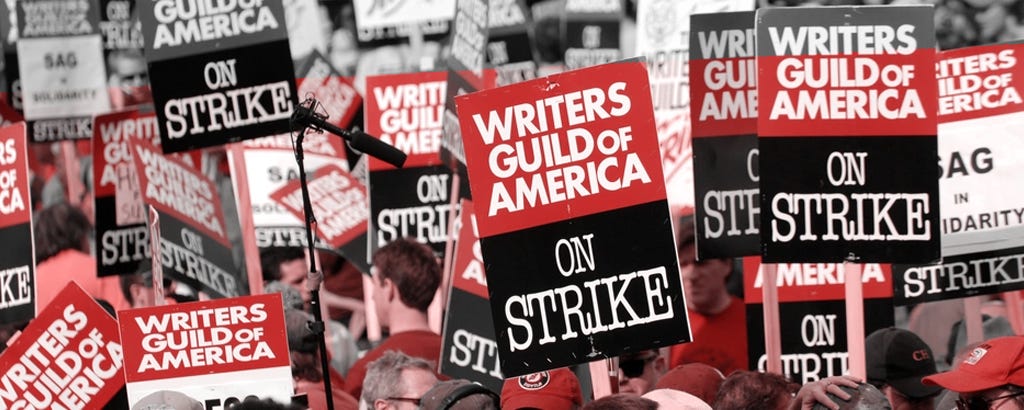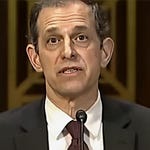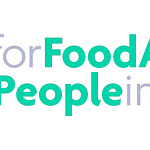We welcome former Writers Guild of America (West) president and current co-chair of the negotiating committee, David Goodman, who also happens to be the head writer for many of your favorite TV shows like “The Family Guy” to tell us why TV and movie writers are on strike. Then, grad students Sandra Oseguera and Jesus Gutierrez stop by to update us on their continuing fight to save the anthropology library at UC Berkeley, a battle that has wider implications for how more and more universities across the country are becoming corporatized. Plus, Ralph highlights some trenchant listener feedback.
David A. Goodman has written for over 20 television series. His best-known work is as head writer and executive producer on Family Guy. He was the president of the Writer’s Guild of America West from 2017 to 2021. In that capacity, Mr. Goodman led the Guild in a campaign to force the Hollywood talent agencies into adopting a new Code of Conduct to better serve the needs of their writers. Today, he serves as co-chair of the WGA negotiating committee in their strike against the Alliance of Motion Picture and Television Producers.
These companies that we work for are spending billions of dollars, making billions of dollars on the product that we create. And writers currently (many of them) can’t afford to pay their rent. Can’t afford to live in the cities where they’re required to work. Need to take second jobs. Now, that’s a very familiar situation in labor across this country. And what we’re saying is if these companies are profitable… we need to fight.
David Goodman, co-chair of the WGA negotiating committee
The reason that our strike does have power is because America and the world relies on this product that we create. Those stories that we create are a connection, are a way for people to connect. And because of corporatization some people are losing sight of that, and hopefully this strike will bring them back.
David Goodman, co-chair of the WGA negotiating committee
Let our listeners know that a lot of those programs that they watch on TV or listen to on the radio all over the country are written by the people who are on the picket lines and are pretty mercilessly exploited by the corporate titans that rake off the profits.
Ralph Nader
Sandra Oseguera and Jesús Gutiérrez are graduate students in the Anthropology department at the University of California, Berkeley. Earlier this year, campus administration announced their plan to close the Anthropology Library, one of only three dedicated Anthropology libraries in the US. In response, stakeholders including students and faculty have organized to demand that the Anthropology Library be protected and fully supported by the University.
We truly disagree with the vision that the administration has for this university, and we believe that it can be different. That this can truly be a public university for students, underrepresented minorities, but also for the public. The public can come here—especially to our library— and be curious, collect knowledge, and have a refuge where they can find themselves in the shelves.
Sandra Oseguera
It has been really inspiring to see our occupation space make our Anthropology Library into the space of encounter and transformation that it is supposed to be. The administration— and the press, to some degree initially— portrayed us as passively occupying, just sleeping and reading in the space. But the reality on the ground has been that the library has become an organizing space. Those of us who are occupying also gather, and then from there we fan out and make plans to go talk to our fellow students, make plans to go confront these core decision makers and hold them accountable for what they are doing to our education, what they are doing to these essential public resources.
Jesús Gutiérrez
We are not chasing symbolic wins. We want a fully functional library. That is what matters to us. And the overwhelming desire of the department, faculty, and grad students is to keep our library open.
Sandra Oseguera
Dear Ralph Nader & Radio Hour Staff,
I Hope that you and your families are all doing well. I look forward weekly to your Radio Hour via KPFA.org Mondays 11am-12pm.
I was excited at the beginning of the hour that you were addressing the topic of sports in the U.S.A. By the end of the hour, I was extremely disappointed at the coverage. I have never been disappointed in the years listening to your radio show and otherwise.
Neither the staff, your guest speaker, nor yourself, mentioned the state of affairs for women in sports, their unfair disadvantages, lack of equity in competing for sports funding from cradle to grave, competing for funding in infrastructure building of training centers, stadiums…, unfair medi coverage, and lastly focusing on the today’s show coverage, girls and women’s injuries, physical, psychological, whether she plays recreationally, professionally, or is not able to reach her potential due to discrimination against her gender, race, ethnic composition, language/cultural barrier, disability visible and non-visible. Shocking that you did not address sexual harassment, abuse, and rape of female athletes at all levels by coaches and male peers! As well as sexual abuse of boys and male athletes by male coaches and peers! Specially in the light of the well documented but short-lived media stories, selective amnesia, about the sexual abuse and rape of many Olympic gymnastics athletes by their team doctor!!!
Concussions are very serious injuries in many sports including but not limited to: football, soccer, baseball, martial arts, boxing, gymnastics, skiing, skating, cycling, surfing, even running slipping and falling on ones head. Serious injuries in many sports are not exclusive to boys and men players! They are definitely not only prevalent in boys and men’s football and baseball only! But as usual, girls and women are not mentioned even in one of the most progressive radio shows in the U.S!!! Shocking and infuriating!
How many more centuries will it take for all of you to acknowledge, research, interview, respect, fund, divulge girl and women’s issues, reality, financial inequity, needs, demands, and listen to Her-Story??!!
I urge you to have an entire show on girl’s and women’s sports addressing the above points I wrote about and much more.
FYI. I follow the news all day. I read papers and online, listen to the radio and follow it on TV. When the sports news section is on, I listen to the first couple of seconds. Undoubtedly and unfortunately, coverage always starts, ends and with boys and male sports and hardly ever over girls and women sports as if we don’t exist and/or don’t play sports at the same rate and intensity!!! Infuriating! So after a couple of seconds, I turn the medium off as a protest and because I can’t bear not being represented!
I am 67 years old and have been, until recently due to health challenges, a serious athlete and played a variety of sports since I was very young. I was born and grew up in Lebanon of a Palestinian athletic father who was a refugee in Lebanon, and an Argentinian artistic mother. I competed in swim competition in Beirut at the age of 9 and on. Started practicing Taekwondo-Do at age 12at the YMCA in Beirut. Practiced 7 days a week about 3-5 hours daily until age 19. I am the first Arab woman receiving a Black Belt in Martial Arts. I also taught Taekwondo-Do to men, women, and children At the YMCA and the AUB.
At age 17 in Lebanon, I was SCUBA Certified by the Lebanese Gov’t via the American University of Beirut’s Biology Department and Diving Club.
At 19 I had to flee Lebanon due to the deadly and long civil war.
In the U.S, among other things, I practiced Taekwondo-Do and Judo. Taught Kickboxing. Did skydiving, swimming, backpacking, camping, spinning, cycling, Tango dancing master classes, practiced and performed Dabkeh Palestinian folkloric dancing, and other sports and activities. When my son turned 10 and I turned 53, him and went on a 278 mile ride across California in 6 days, riding through the most spectacular California scenery, coast, high desert of Anza Borrego, sand dunes, pastures…under the hot sun, sand wind, and rain. The ride of a lifetime!
I am writing, briefly, about my life and some of my accomplishments, to bring home to you that this herstory is one of billions that needs to be talked about every day, in all industries, and in all aspects of life and living. My story is different but not unique. Every action, gain, and defeat was earned by working more than double than white men in the U.S. and men in general in other parts of the world. I forge ahead against all odds: Ethnic and gender discrimination, gender and general violence, war, trauma, immigration, poverty, housing and food insecurity, divorce, single motherhood, injuries, chronic and degenerative disease.
I urge you to pay attention, and not ignore 52% of the world population. We have the same feelings and get injured at the same rate as men. We are your mothers, grandmothers, sisters, relatives, girlfriends, friends, neighbors, teachers, coaches, doctors, farm workers, nationals including Native Americans, immigrants, refugees, asylum seekers, prisoners, governors, and hopefully soon president of an equitable and peaceful U.S.A nationally and internationally.
Sincerely,
Randa Baramki
Dear Ralph,
I have to take issue with a few things Shanin Spector stated. I'll confine this comment to one: The advice that no lawyer can afford to take a $250,000 medical malpractice case and at least, implicitly, that elderly people are out of luck if they fall victim to medical malpractice (which is probably the largest demographic that are victims).
Lawyers, even well-seasoned ones with profitable practices, can and do take risky malpractice cases for elderly people for a variety of reasons-even in venues where the jurors are instinctively in favor of local doctors. See, E.g., Cooper v. Hanson, 2010 MT 113, 234 P.3d 59. In fact, most trial lawyers--even good ones-- don't have the luxury of Cherry Picking only multi-million dollar cases. We take risks, which is why we are allowed to charge contingency fees.
A medical malpractice case for an elderly person can be done profitably, although the lawyer is not going to get rich. Most jurisdictions have mechanisms to cut costs and streamline some of the proceedings, at least if you have a good judge. Depending on the facts, you could conduct the whole case for less than $100,000 in legal costs and at any rate, costs are the client's obligation if you win and should only be the lawyer's if he or she loses (Although some lawyers regrettably charge either way. Avoid them if that is what they do).
Moreover, a general statement about pain and suffering damage caps on elder cases needs to be qualified for a variety of reasons. Loss of earning capacity may not be the driving generator of damages. It might be the medical costs and rehabilitation costs, which could run into the millions and hence, would generate millions in damages. Moreover, the presence and amount of caps varies from jurisdiction to jurisdiction. Washington, for instance, has no caps.
I will agree that risks have to be considered. One has to make a back of the envelope determination if the firm, given its financial status, can take the risk. An expensive, complicated case of questionable liability probably could not be considered. On the other hand, a relatively straightforward case with relatively clear liability could be.
A big factor is the seriousness the lawyer pays to his or her duty to perform pro bono work. You are supposed to take cases as part of your duty to the community. You don't always take cases--even risky cases-- to make the big bucks. At least, you should not.
There are benefits other than getting paid a lot. An ambitious young lawyer with a limited practice, but good skills, might jump at the opportunity to go to trial (Though sad to say, many who call themselves trial lawyers do everything they can to stay out of the scary courtroom, but there are some serious trial lawyers too.).
One thing, which was not touched upon, is that an elderly person who suffers the injuries of a medical mistake SHOULD NOT HAVE TO PAY ANYTHING FOR A CONSULTATION WITH A CONTINGENCY FEE LAWYER. THAT SERVICE IS FREE IN ALL CASES. As should be clear from the above, whether or not the lawyer can take the case depends on the facts and circumstances and there is no charge for telling the lawyer the facts.
I know Mr. Spector qualified his advice near the end of the podcase, but judging from some of the listeners' questions, they got the impression that if you are old and injured by medical malpractice, you were out of luck. I think that impression needs refinement.
Thanks for giving me this opportunity to present my little dissertation. I mean no disrespect to Mr. Spector, but I felt as if a more nuanced response would help your listeners.
Erik Thueson












